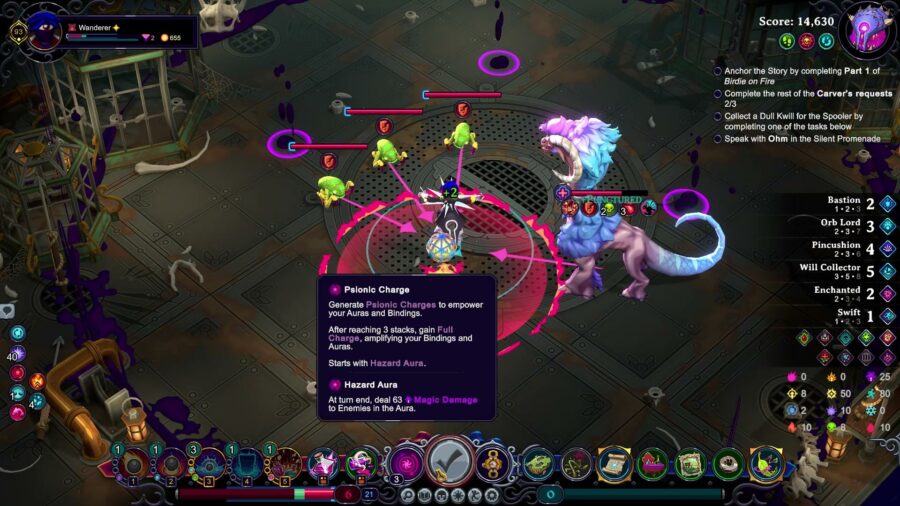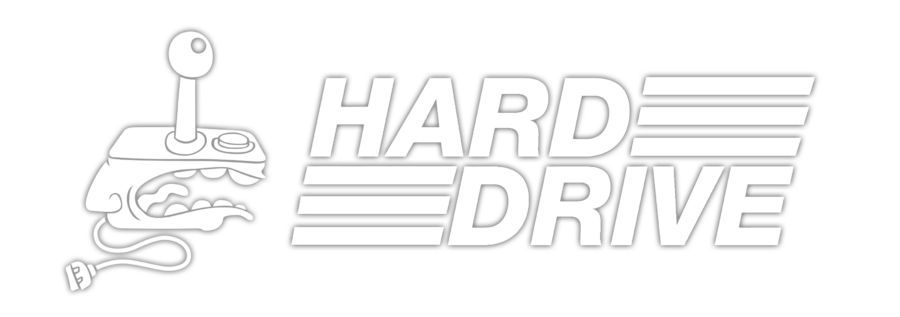Welcome to Game Night, a Hard Drive review series that focuses on indie games.
“Indie” as a game category is loosely defined. It tends to refer to lower-budget productions with smaller creative teams, which can cover anything from a solo developer’s side hustle to veteran creators’ new startups.
More importantly, the indies get to be weird. Mainstream “AAA” video games often stick to a handful of established formulas, whereas indies have the freedom to explore niche genres, new mechanics, unique art styles, and/or the developer’s warped sense of humor. As a result, a lot of the “indie” label comes down to vibes, which is why games from billion-dollar studios like Dave the Diver can try to steal the label.
Despite that, this is a golden age for indies. It’s never been easier to make your own video game than it is right now. Digital storefronts like Steam and Itch can get anyone’s game in front of a global audience, while game creation tools have gotten progressively cheaper and easier to use. Sure, it creates the occasional broken nightmare or playable shitpost, but that’s the price you pay for creative democracy.
This would be a great time for indies as a whole to get more dedicated press coverage, but unfortunately, this is happening alongside the enshittification of the wider Internet. Due to the constant pursuit of SEO, many sites don’t have space to discuss anything that isn’t already a megahit.
That’s where Game Night comes in. Since Hard Drive is already on its financial suicide arc (join our Patreon today!), there’s no reason not to devote some of our column space to regular indie coverage. Every week, we’ll check out another game to highlight some hits, talk up the disasters, and look for diamonds in the rough. Hopefully you’re willing to come along for the ride.
—-

Anyway. Inkbound.
I hadn’t planned for this to be the first game I covered for the column, but I haven’t played much of anything else for the last few weeks. Sometimes you install a random indie just to see what it’s about and it proceeds to crawl directly into your skull.
Inkbound is a new roguelike from Shiny Shoe, the studio that made 2020’s Monster Train. Unlike its predecessor, Inkbound isn’t a card game. Instead, it’s a turn-based dungeon crawler, where you have to balance defense, offense, and positioning on every turn.
It’s also the sort of jam-band project that’s difficult to describe without talking about features from a half-dozen other games. Inkbound feels like Shiny Shoe took bits from every decent roguelike they’ve played lately, pushed it all into Inkbound like a game-mechanics Voltron, and then added co-op play. It was going to be a monster either way, but at least it’s in the sense that it’s a terrible, all-consuming addiction.
Inkbound is set in a magical library, the Atheneum, which is linked via its books to many other story-worlds. An unknown force has destroyed many of those worlds, and the survivors have taken refuge in the Atheneum.
You play as a Needless, a mute spirit of the library, who’s sent back out into the worlds in search of more information. If you survive, that’s great; if you don’t, you’re treated as expendable.
At the start of a run through Inkbound, you pick a class, which gives you 3 unique skills that define your basic game plan. As you progress through each encounter, you can gradually gather more upgrades and abilities. The challenge is to figure out how to turn all the random nonsense the game throws at you into a cohesive character build, and to do so before one of the bosses kicks your hairstyle in.
Co-op, conversely, is about how to trick your fellow players into not committing suicide. It’s tempting to just let everyone do whatever they want, but you end up having to discuss each turn in detail. Otherwise, your teammates will cheerfully redirect enemy attacks at one another, teleport into lava, or end their turn within 5 intersecting damage zones. If the solo game is about adaptability, co-op Inkbound is about herding cats.
In either mode, Inkbound is difficult, but it’s the good kind of difficult. Every time you lose, you can generally trace it back to a handful of your own bad decisions, so you might as well jump right back into the game and see if you can do better this time around. The next thing you know, it’s 2 AM.
Whether you win or lose a run, you gradually unlock more and better equipment, along with a whole whack of cosmetic items and a few of the stranger character classes. Winning gets you more of the same, as well as access to higher difficulty modifiers.
If I had a single major criticism, it’s that Inkbound’s overall reward structure makes an old mistake. It doesn’t give you any ability to filter your loot during a run, so all of the really killer gear that you unlock gets thrown into the same bucket with everything else.
You can find legendary items towards the end of a run that allow for some truly broken character builds, but in practice, you’ll rarely see them. There are just too many potential item drops by that point in the game. It creates an unsatisfying situation where all your best gear is also effectively too rare to reliably use.
The story’s also told in a strange way. Inkbound gives me the impression that its lore bible is a couple inches thick, full of characters we never meet and the strange history of the Atheneum. It’s a colorful world, but you aren’t exactly a character in it. Instead, you’re a magical UAV, who gets dispatched into threat zones by the people who actually matter.

It makes Inkbound into the story of something that happens around you, rather than to you. That doesn’t mean it’s bad, especially in a style of game that’s usually content to have no story at all, but it’s an interesting narrative flaw. Shiny Shoe was so eager to try and fill in some of the plot holes that are usually posed by roguelike mechanics that it created a few new issues that are all its own.
Otherwise, I don’t have many notes. If you’re like me and you’ve got a hole in your brain that’s only filled by short-run roguelikes, Inkbound is a charming, tricky example of the genre. Solo, it’s addictive enough to keep you busy for a couple of weeks, and its co-op mode is a useful game to have in your back pocket for quiet nights online.
[Inkbound, published and developed by Shiny Shoe, is currently available on Steam for $29.99. This review was written using a code sent to Hard Drive by Shiny Shoe’s PR representative.]



